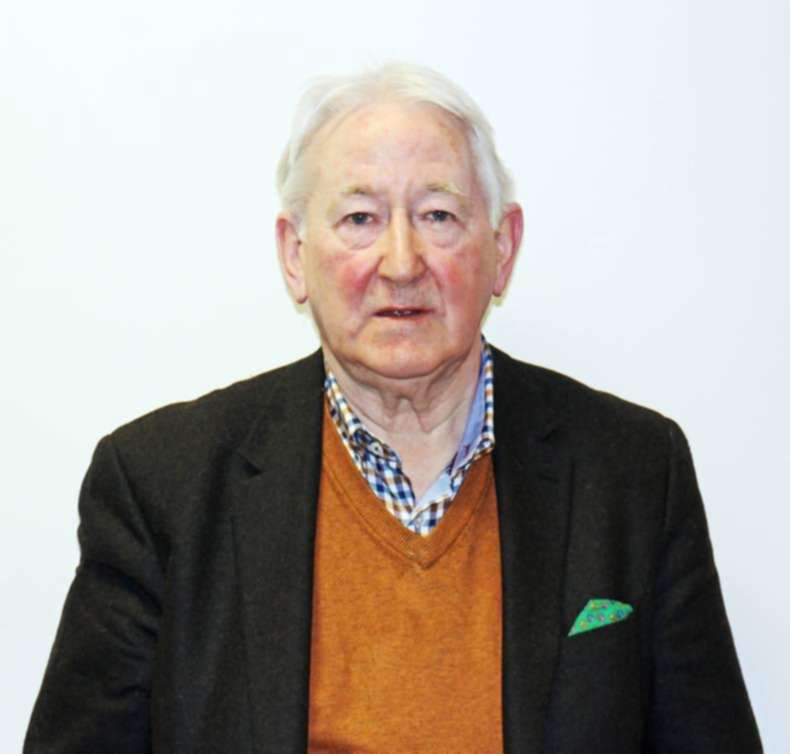
LOYALTY CODE:
The paper code cannot be redeemed when browsing in private/incognito mode. Please go to a normal browser window and enter the code there

LOYALTY CODE:
The paper code cannot be redeemed when browsing in private/incognito mode. Please go to a normal browser window and enter the code there
This content is copyright protected!
However, if you would like to share the information in this article, you may use the headline, summary and link below:
Title: Survival rations and farming survivors in Russia
In 1989, Russia was on the cusp of a dramatic social, political, and economic revolution. The death-rattle of Socialism could be heard loudly, so where did it all go wrong? Brendan Dunleavy explains.
https://www.farmersjournal.ie/survival-rations-and-farming-survivors-in-russia-172981

ENTER YOUR LOYALTY CODE:
The reader loyalty code gives you full access to the site from when you enter it until the following Wednesday at 9pm. Find your unique code on the back page of Irish Country Living every week.

CODE ACCEPTED

You have full access to farmersjournal.ie on this browser until 9pm next Wednesday. Thank you for buying the paper and using the code.

CODE NOT VALID
Please try again or contact us.
For assistance, call 01 4199525
or email subs@farmersjournal.ie
Sign in

Incorrect details
Please try again or reset password
If would like to speak to a member of
our team, please call us on 01-4199525
Reset
password
Please enter your email address and we
will send you a link to reset your password

If would like to speak to a member of
our team, please call us on 01-4199525
Link sent to
your email
address
![]()
We have sent an email to your address.
Please click on the link in this email to reset
your password. If you can't find it in your inbox,
please check your spam folder. If you can't
find the email, please call us on 01-4199525.
![]()
Email address
not recognised
There is no subscription associated with this email
address. To read our subscriber-only content.
please subscribe or use the reader loyalty code.
If would like to speak to a member of
our team, please call us on 01-4199525
 This is a subscriber-only article
This is a subscriber-only article
Update Success !

Exactly 25 years ago this month, the once all-powerful and much-feared Soviet empire was about to implode. With it the Russian economy also stalled and disintegrated into smithereens. Russians began to instinctively prepare for the change they had simultaneously feared and craved for generations. But the moribund Russian socialist and state farming behemoth was now lashing out one last dying kick.
In June 1989, stocks of the most essential foods and consumer goods were running out in Russia. No longer were there any boxes of tea or soap on shop shelves. A year later, critical stocks of vodka, sugar and cigarettes were also running dangerously low.
In president Putin’s home city of Leningrad (St Petersburg), the plight of the citizenry was dire. Prolonged hunger, hardship and food shortages were nothing new to the resilient and proud people of this beautiful city. But the extreme conditions they had experienced – and survived – during World War I and II were now looming ominously again.
The much despised ration books of wartimes were being dusted down and re-printed.
In November 1990, every citizen of Leningrad was restricted to the following food ration per month: 3lb of meat, 2lb of offals, mince, or canned meat (very low quality), 10 eggs; ½lb of vegetable cooking oil, 1lb of butter, 1lb of flour and 2lb of cereal grains, buckwheat, or dry pasta. Citizens were expected to produce or find their own supplies of milk, potatoes, fruit and vegetables. This would be less of a problem than surviving on the skimpy official rations supplied by the state.
Small Russian private family farms and individual dacha plots of around 200 square metres are remarkably efficient and productive. Although they hold less than 20% of Russian agricultural land area, they produce more than 60% of the country’s agricultural output.
Specifically, small private farms and individual dacha plots produce 75% of all Russia’s fruits and vegetables, 55% of all meat, 67% of all milk and over 90% of all the country’s potatoes.
Furthermore, they achieve this extraordinary high level of agricultural productivity with the minimum of resources – except their wits. Russian family farmers perform under conditions that are 60-70 years behind what Irish farmers enjoy. They have only the most basic and obsolete tools and equipment. They can’t afford any fertilizers, agrochemicals, or certified seed. Their farm management expertise is almost nil. They have no co-ops, no farm organisations, no processing or marketing services, no cold stores or food transport systems.
Obesity is not a problem in Russia, and it never was. The only Operation Transformation needed in Russia is to transform the economy – particularly the agricultural production and food distribution systems. Rumours of food riots on Russian streets are always greatly exaggerated. It was only when cigarette supplies ran out in Leningrad in August 1990 that the crisis became real. It was a strange reality, but it was typically Russian.
Brendan Dunleavy has over 20 years of agricultural project management experience in Russia and Ukraine.
SHARING OPTIONS: